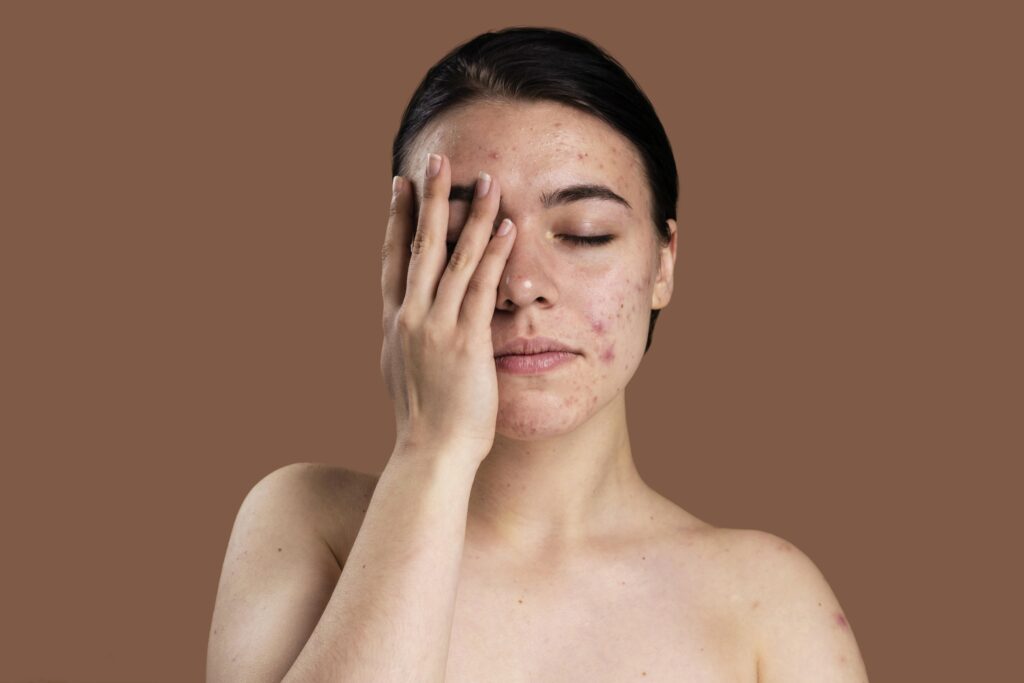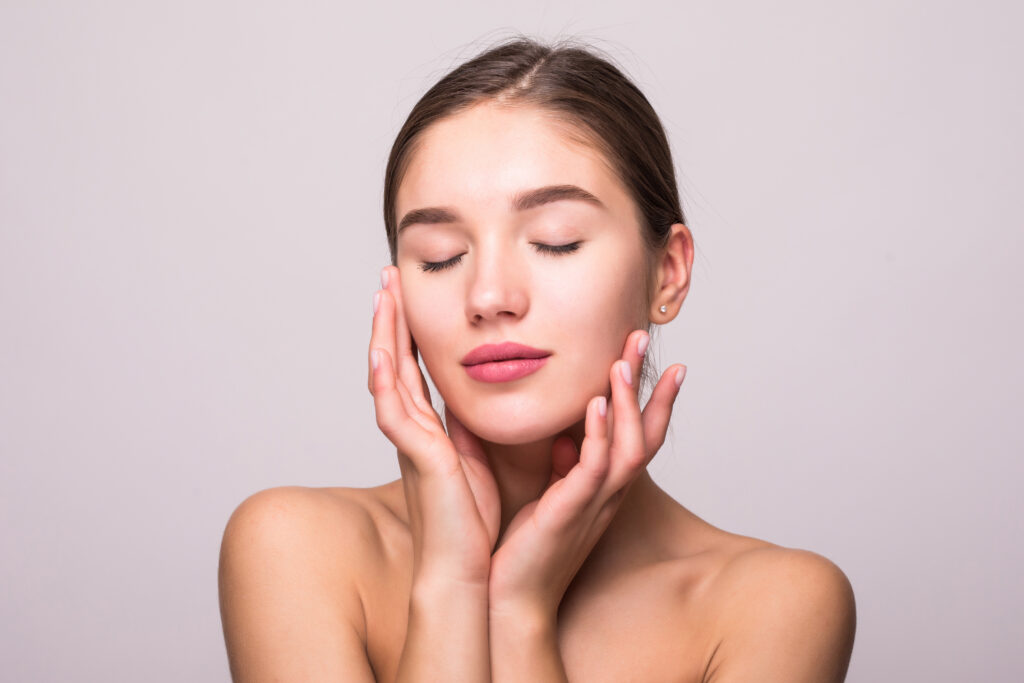
Dealing with acne-prone skin can be challenging. Acne often causes breakouts, redness, and scarring. To keep acne-prone skin clear and healthy, you should follow a skincare routine specifically designed for it. In this post, we’ll look at natural and scientifically proven ways to effectively manage acne.
Table of Contents
ToggleCauses of acne
- Hormonal changes
- Excess oil
- Clogged pores
- Poor diet
- Stress
- Environmental factors like pollution
Your skin type and genetics additionally impact whether you are prone to acne.
Important Steps in a Skincare Routine for Acne-Prone Skin
Gentle Cleansing: To remove dirt, oil, and makeup without irritating your skin, use a mild, non-comedogenic cleanser (one that will not clog pores) twice a day.
Exfoliation: Instead of harsh physical scrubs, use chemical exfoliants such as salicylic acid to gently remove dead skin cells and unclog pores.
Toning: Following cleansing, use an alcohol-free toner to balance the pH of your skin and remove any remaining oil or dirt. It keeps your skin fresh and ready for moisturization.
Moisturizing: Even acne-prone skin requires hydration. Choose a light, oil-free moisturizer to keep your skin hydrated without causing breakouts.
Sun Protection: Always use a non-greasy sunscreen with SPF to protect your skin from sun damage, which can aggravate acne and cause dark spots.
Top Ingredients to Look for in Acne Products
Salicylic acid: It is excellent for deep cleaning your pores and reducing inflammation, which helps to prevent breakouts.
Benzoyl Peroxide: Because it kills the bacteria that cause acne, this ingredient is extremely effective at treating pimples.
Niacinamide: It soothes irritated skin, reduces redness, improves skin texture, and regulates oil production.
Tea Tree Oil: A natural antibacterial agent that combats acne-causing bacteria while remaining gentle on the skin.
Aloe Vera: Soothes and heals irritated skin, making it ideal for reducing acne breakouts.

Lifestyle Tips for Acne Management
Diet and Acne: What you eat can influence your skin. Foods high in sugar and refined carbs (such as candy and white bread) can cause breakouts, whereas anti-inflammatory foods like leafy greens, berries, and fatty fish can help clear your skin.
Stress Management: Stress frequently leads to breakouts. Meditation, deep breathing, and yoga are all relaxation techniques that can help reduce stress and calm your skin.
Hygiene Practices: To prevent acne, keep your skin clean by washing pillowcases on a regular basis, avoiding touching your face during the day, and cleaning makeup brushes.
Common Mistakes to Avoid in Acne Skincare
- Over-exfoliating or using harsh scrubs
- Skipping moisturizers
- Using too many active ingredients
- Popping or picking at acne
Conclusion
In summary, maintaining a consistent and gentle skincare routine is essential for managing acne-prone skin. You can see real results over time if you follow the right steps and use products that are appropriate for your skin type. Remember that healthy habits such as eating a well-balanced diet and reducing stress can help you maintain clear skin. If you have any skin care tips or questions, please share them in the comments; we’d love to hear from you!
FAQs
Acne-prone skin benefits from a simple routine that includes a gentle cleanser, exfoliant (such as salicylic acid), lightweight moisturizer, and sunscreen.
For acne-prone skin, exfoliating 2-3 times per week with a chemical exfoliant like salicylic acid can help unclog pores without irritating the skin.
Yes! Even oily and acne-prone skin requires hydration. To prevent dry skin without clogging pores, use an oil-free, non-comedogenic moisturizer.
Avoid heavy oils, alcohol-based products, and harsh physical exfoliants, which can clog pores and irritate acne-prone skin.
Yes, foods high in sugar and dairy have been linked to acne breakouts. A well-balanced diet rich in fruits, vegetables, and healthy fats can help to keep your skin clear.